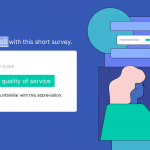OpenAI launches the ‘API’ – an advanced AI language system

- OpenAI was established as an independent and nonprofit research institution
- It’s now launched an advanced AI language system for businesses
- The advanced AI language system bears potential in humanistic interactions
OpenAI, originally a nonprofit AI research organization founded by Elon Musk along with other notable Silicon Valley members in 2015, has this week released a highly advanced AI language system for commercial use.
Built on years of research and ever-growing data troves feeding AI algorithms and neural networks, its product ‘API’ is set to perform an array of language-related tasks that includes translations, compositions of content from news stories to poems, and answering everyday questions with a more human voice.
The program has been built by “trillions of words” from texts including the entirety of Wikipedia, countless books and a large chunk of the internet. All this data has been analyzed by a supercomputer, enabling API to look at examples of language and use them to predict or say what word should come next in sentence, or how to answer a specific question.
We're releasing an API for accessing new AI models developed by OpenAI. You can "program" the API in natural language with just a few examples of your task. See how companies are using the API today, or join our waitlist: https://t.co/SvTgaFuTzN pic.twitter.com/uoeeuqpDWR
— OpenAI (@OpenAI) June 11, 2020
OpenAI’s chief technology officer, Greg Brockman, said, “The big mental shift is, it’s much more like talking to a human than formatting things for a machine,” as reported in Wired. “You give it a few questions and answers, and suddenly, it’s in Q&A mode.”
Eli Chen, CEO of startup Veriph.ai, who tried out an earlier version of OpenAI’s product, told Bloomberg that the AI language system reached a point where it “assimilates all of human knowledge because it has seen everything before.”
It’s an advancement that “very few other companies would be able to afford” to do.
Although so far a limited number of companies have tried and tested the API – and its price tag is still unannounced – there could be plenty of applications for businesses to use it to enhance their products and services.
Companies can adopt the API to enhance their customer support chat systems, for example – making them much more lifelike, ‘smart’ and versatile – while it can be used to develop education products and games, and could also be used by marketing and creatives departments to provide creative copy writing recommendations.
In short, it could serve as an alternative option for companies lacking capital and resources to train an entire department.
YOU MIGHT LIKE

Can artificial intelligence be a muse to creativity?
Education software maker Quizlet has been using the API to automatically generate sentences of specific words to teach vocabulary. Meanwhile, Reddit is testing the API in content moderation tasks, and Casetext is aiming to improve its legal research search service.
Startup company Latitude was able to utilize the API to help develop their text-based role-playing game that shares similarities to the popular board game Dungeons & Dragons. Essentially, OpenAI’s API covers a broad range of applications across industries.
Even though the launch has been met with excitement as to its potential use cases and breakthroughs, OpenAI’s previous work in the AI languages arena has drawn concern.
Last year, OpenAI developed a text generator trained on a data set of eight million web pages that could adapt to the tone and style of a single line of text, creating full articles and other passages of text.
But the organization decided not to share the full version of the text-generation algorithm, named GPT-2, due to concerns over “malicious applications,” such as its potential to spread misinformation or ‘fake news’.
“Due to concerns about large language models being used to generate deceptive, biased, or abusive language at scale, we are only releasing a much smaller version of GPT-2 along with sampling code,” OpenAI announced in a blog post last year.
“We are not releasing the dataset, training code, or GPT-2 model weights.”
For a company that began with aims to be an open research institution – generally geared to counterbalance to the power and close operations of large tech corporations – to one that then took a US$1 billion investment from Microsoft, and is now commercializing a product in order to fund the large upkeep in computing power, the rollout of API has drawn some critique.
Oren Etzioni, the CEO of the Allen Institute for AI, noted that while the company previously cautioned around the dangers of this technology, improving it and turning into a product is certainly ironic. Etzioni also observed that its AI modeling strategy, leveraging huge amounts of data, is “brawn-over-brain” at a time when researchers are looking towards models that can learn from finite sources of data.
Brockman called API a major advance towards building advanced AI into almost every software product and pledged vigilance as to how the technology is used and the outcomes that occur, but said it’s better to deploy the technology while it can be controlled, before it gets too powerful.
“It is hard to anticipate everything that might happen,” Brockman said. “We don’t think we can get everything right, certainly not up front.”
Last year, Elon Musk stated that he had parted ways with the organization on the grounds of it having deviated from its initial goals.
Also, Tesla was competing for some of same people as OpenAI & I didn’t agree with some of what OpenAI team wanted to do. Add that all up & it was just better to part ways on good terms.
— Elon Musk (@elonmusk) February 17, 2019









